Search results, if found, will automatically update as terms are selected. If no results are displayed, please revise your search terms.
Filter By:
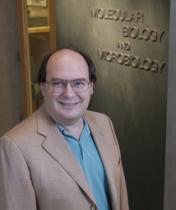
Jonathan Karn, PhD
Professor and ChairDepartment of Molecular Biology and MicrobiologySchool of MedicineDirectorCase Center for AIDS ResearchProfessorDepartment of BiochemistrySchool of MedicineMemberPopulation and Cancer Prevention ProgramCase Comprehensive Cancer CenterEmail: jonathan.karn@case.edu
Phone: 216.368.3915
Current research interest concerns epigenetic control mechanisms that regulate HIV transcription and latency. Understanding these mechanisms is central to current efforts to induce latent viruses as part of an HIV eradication strategy. We have established new model systems for studying HIV latency and identified novel signaling pathways leading to proviral reactivation and silencing – key insights that support current efforts at HIV eradication and cure. Additional projects include harnessing NK cells to eradicate the latent HIV reservoir. Another theme is studies of HIV infection and latency in microglial cells, a key factor in the development of neurocognitive defects. Finally, we have recently initiated projects on the replication of SARS-CoV-2 using a reverse genetics strategy. We are also developing new diagnostic assays for detection of intracellular SARS-CoV-2 replication.
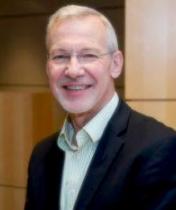
James W. Kazura, MD
ProfessorDepartment of PathologySchool of MedicineDistinguished University ProfessorSchool of MedicineAdel A. Mahmoud Professorship in Global Health and VaccinologyDepartment of PathologySchool of MedicineMemberCenter for Global Health & DiseasesSchool of MedicineEmail: jxk14@case.edu
Phone: 216.368.4810
My research includes immunoregulatory mechanisms of malaria and worm pathogenesis, including acquired resistance to infection and malaria biology.
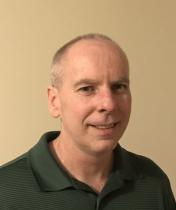
Thomas Kelley, PhD
ProfessorDepartment of Genetics and Genome SciencesSchool of MedicineAssociate ProfessorDepartment of PharmacologySchool of MedicineDirectorEpithelial Cell CoreEmail: thomas.kelley@case.edu
Phone: 216.368.0831
My research is in inflammatory processes in cystic fibrosis lung disease, inflammatory cell signaling mechanisms, microtubule regulation, and MIRAGE syndrome.

Ruth Keri, PhD
ProfessorDepartment of Molecular MedicineSchool of MedicineAssociate Director for Basic ResearchCase Comprehensive Cancer CenterMemberMolecular Oncology ProgramCase Comprehensive Cancer CenterProfessorDepartment of Genetics and Genome SciencesSchool of MedicineEmail: kerir@ccf.org
Phone: 216.445.1323
My research includes mechanisms of breast cancer initiation, growth, and metastasis, as well as mechanisms of therapeutic response and resistance in cancer.
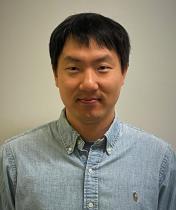
Tae Hun Kim, PhD
Assistant ProfessorDepartment of BiochemistrySchool of MedicineMemberCancer Genomics and Epigenomics ProgramCase Comprehensive Cancer CenterEmail: txk560@case.edu
Phone: 216.368.1857
I study DNA damage repair processes and epigenetic modifications using structural biology and biophysical tools.

Christopher L. King, MD, PhD
ProfessorDepartment of PathologySchool of MedicineAssociate ProfessorDepartment of MedicineMemberCenter for Global Health and DiseasesSchool of MedicineEmail: christopher.king@case.edu
Phone: 216.368.4817
We study the mechanisms of acquired immunity to malaria, SARS-CoV-2 and filariasis with a focus on humoral immunity. This work involves B cell molecular immunology and development human monoclonal antibodies as therapies. We also develop novel tools for control and elimination of lymphatic filariasis and onchocerciasis.
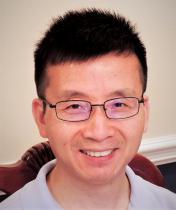
Qingzhong Kong, PhD
Associate ProfessorDepartment of PathologySchool of MedicineAssociate ProfessorDepartment of NeurologySchool of MedicineAssociate ProfessorDepartment of Environmental Health SciencesSchool of MedicineEmail: qingzhong.kong@case.edu
Phone: 216.368.1756
My lab utilizes mouse models and other approaches to study animal and human prion diseases, especially on zoonosis of animal prions (such as mad cow disease in cattle and chronic wasting disease in deer, elk and moose) and modeling, diagnosis and pathogenesis of various prion diseases. We also are developing gene and cell therapies for neurodegenerative diseases (such as prion diseases and Alzheimer's disease), cancer and diabetes.
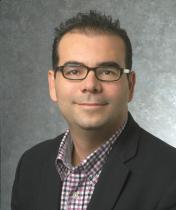
Mehmet Koyutürk, PhD
Andrew R. Jennings ProfessorDepartment of Computer and Data SciencesCase School of EngineeringMemberCancer Genomics and Epigenomics ProgramCase Comprehensive Cancer CenterEmail: mehmet.koyuturk@case.edu
Phone: 216.368.2963
I analyze high-throughput biological data, algorithmic and analytical methods in systems/network biology, algorithms for data mining and analysis, parallel computing, algorithms for distributed systems, and optimization problems in scientific computing.
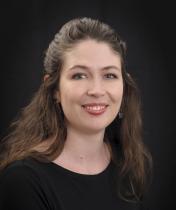
Allison Kraus, PhD
Associate ProfessorDepartment of PathologySchool of MedicineEmail: alk127@case.edu
I research self-propagating misfolded proteins of neurodegenerative diseases, including Alzheimer’s, chronic traumatic encephalopathy, Parkinson’s, and prion diseases. I also focus on the analysis of what makes a misfolded protein transmissible, and what makes a transmissible protein seed pathogenic to the host.

Thomas LaFramboise, PhD
ProfessorDepartment of Genetics and Genome SciencesSchool of MedicineMemberCancer Genomics and Epigenomics ProgramCase Comprehensive Cancer CenterEmail: thomas.laframboise@case.edu
Phone: 216.368.0150
We develop and apply computational tools to identify molecular variants that contribute to cancer and related diseases in humans.

